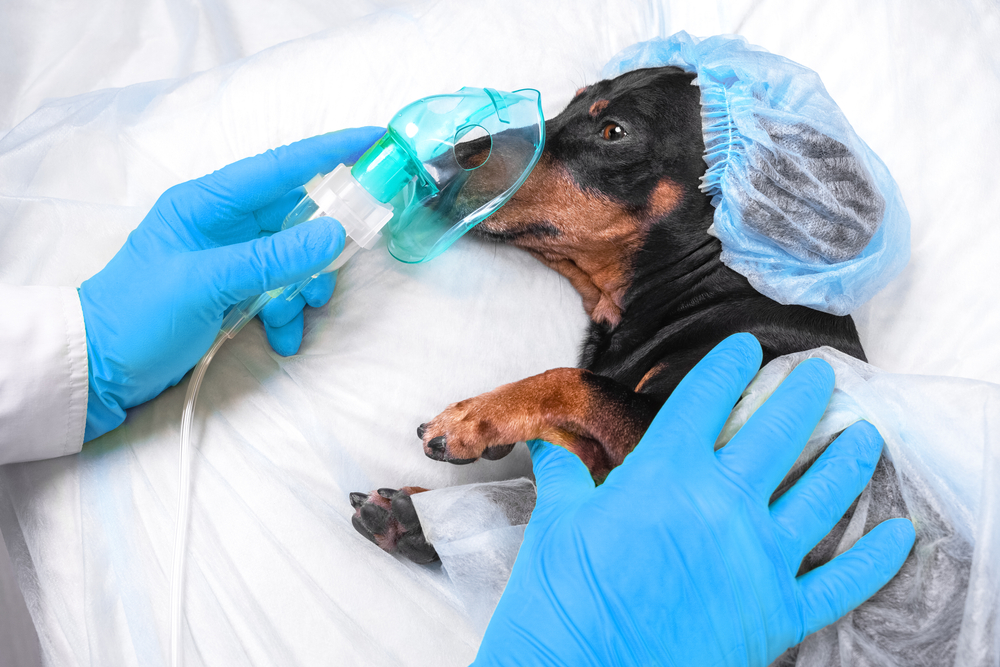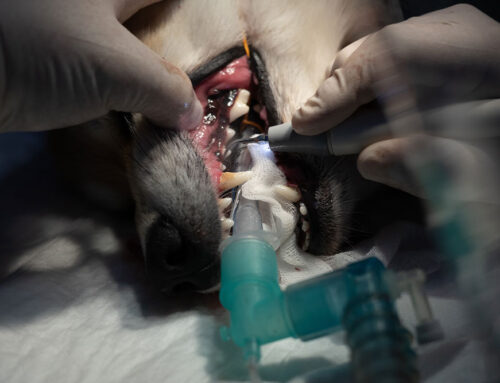All veterinarians must master fundamental anesthesia skills, because evaluating pet health and anesthetic risk, crafting an appropriate and safe anesthetic protocol, and contending with complications during surgery are crucial elements of daily practice. However, many general practitioners are uncomfortable going beyond the typical elective surgery and anesthetizing high-risk or critical pets. This is where VESEPCON anesthesia and analgesia specialists come in.
Veterinary anesthesiologists are diplomates of the American College of Veterinary Anesthesia and Analgesia (ACVAA). They are highly trained with a wide skill set that includes safe general anesthesia administration, local and regional blocking techniques, acute pain control, and long-term chronic pain management, so can potentially help patients across all disciplines. Here are four ways that consulting with an anesthesia and analgesia specialist can elevate patient care in your practice.
#1: Reduce anesthesia risks
Anesthesiologists work primarily in large specialty, referral, and teaching hospitals, which means their expertise is available only to clients who can travel and afford their services. This problem is easily solved by consulting with a specialist remotely regarding your day-to-day or critical anesthesia cases—together with your consultant, you can craft individualized protocols that reduce or manage risks. The anesthesiologist can also help you prepare for potential complications by ensuring you have the correct emergency drugs on hand and that you understand exactly how to use them. During anesthesia, you can ask a veterinary team member to consult with the anesthesiologist if you need help quickly calculating a CRI, or encounter a strange arrhythmia or other intraoperative issues. Help is available when minutes matter.
#2: Manage acute pain
We know that pain and stress are closely linked, and allowing patients to feel pain needlessly is cruel, plus the stress can negatively impact their healing and immune system. When crafting an anesthesia protocol, consider consulting with an anesthesiologist about the best pain management for your patient. Should you perform a local or regional block before surgery? Should you provide a steroid or NSAID? How should you time the pre-, intra-, and post-operative pain medications? With their years of experience, anesthesiologists can share the best pain management strategies for a given procedure, adjusted for each individual.
#3: Manage chronic pain
An anesthesia and analgesia specialist manages pets’ chronic pain on a daily basis. If you’ve tried everything you know, our consultants can help you modify your pain control plan or suggest something new. Specialists are continually learning about their field’s newest developments and studies, which they in turn will pass on to you when you need a new approach for your patient. They also work closely with other specialists, such as surgeons and rehabilitation practitioners, who must keep current on the newest pain-relieving and regenerative procedures.
#4: Step outside your comfort zone
If you’re a creature of habit, you likely feel uncomfortable trying out new drugs, drug combinations, or other aspects of the anesthesia protocol. An anesthesiologist can support you through the process of implementing change by answering your questions and guiding you on using the safest, most up-to-date methods and protocols. Each time you step outside your comfort zone and consult with our specialist, you build your own confidence, skill level, and expertise for handling future cases.
VESPECON Consulting Services

Consulting with an anesthesiologist is easier than ever with VESPECON. Our specialists cover all disciplines and collaborate closely with you and each other, so you always have top-notch care right at your fingertips. The video chat format allows you to connect in person and receive immediate advice. You will no longer have to play phone tag and wait for help—which is especially crucial when your patient is on the surgery table. However, for patients who would be better served at a practice with an anesthesiologist on staff, we can ensure a smooth transition by coordinating a timely appointment and transfer of records.
A VESPECON specialist can help with your toughest anesthesia cases, review imaging cases, or consult with you on a myriad of problems and procedures. Sign up through our website or contact us to learn more about how our team can elevate your team.







Leave A Comment